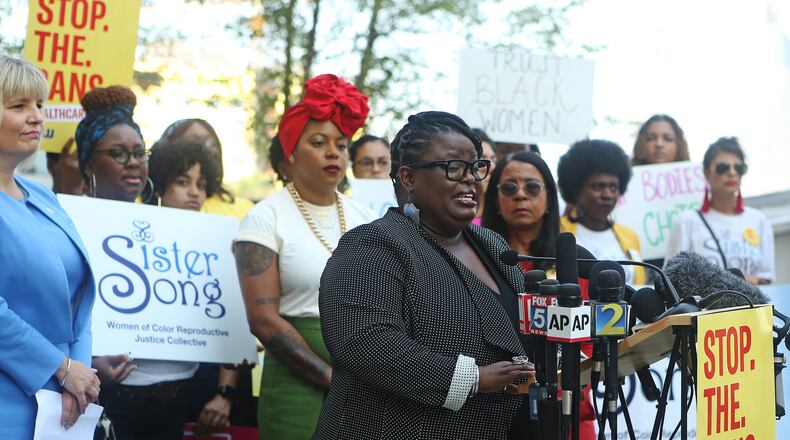While the U.S. Supreme Court’s announced Monday that it would consider a restrictive anti-abortion law out of Mississippi, Georgia activists are readying for their day in a federal appeals court later this year.
Debate on Georgia’s law that would ban most abortions once a doctor could detect fetal cardiac activity — usually around six weeks of pregnancy — is scheduled for the week of Sept. 24.
Georgia’s law also includes what many supporters call “personhood” language, which would extend legal rights to fertilized eggs. Abortion providers sued the state in 2019, with a federal district judge striking down the law in 2020.
Mississippi’s law, also blocked by lower courts, would outlaw most abortions once a woman reaches 15 weeks of pregnancy.
The laws were among several similar measures passed in states mostly across the South that seek to challenge Roe v. Wade, the 1973 U.S. Supreme Court case that established a constitutional, nationwide right to abortion.
The court’s decision to consider Mississippi’s law sets up a showdown over abortion, probably in the fall, with a more conservative court that could dramatically alter nearly 50 years of rulings on abortion rights. The court has repeatedly ruled in favor of upholding Roe v. Wade, most recently rejecting a Louisiana law that would have required those who perform abortions to have admitting privileges at local hospitals.
Supporters of Georgia’s law have said that it has the best chance of reversing the 1973 decision because of its provisions that grant rights to a fetus.
Georgia’s law would allow parents, once a doctor detects fetal cardiac activity, to claim an embryo on their taxes as a dependent. A court could also order a father to pay child support after fetal cardiac activity is detected.
About the Author
Keep Reading
The Latest
Featured




